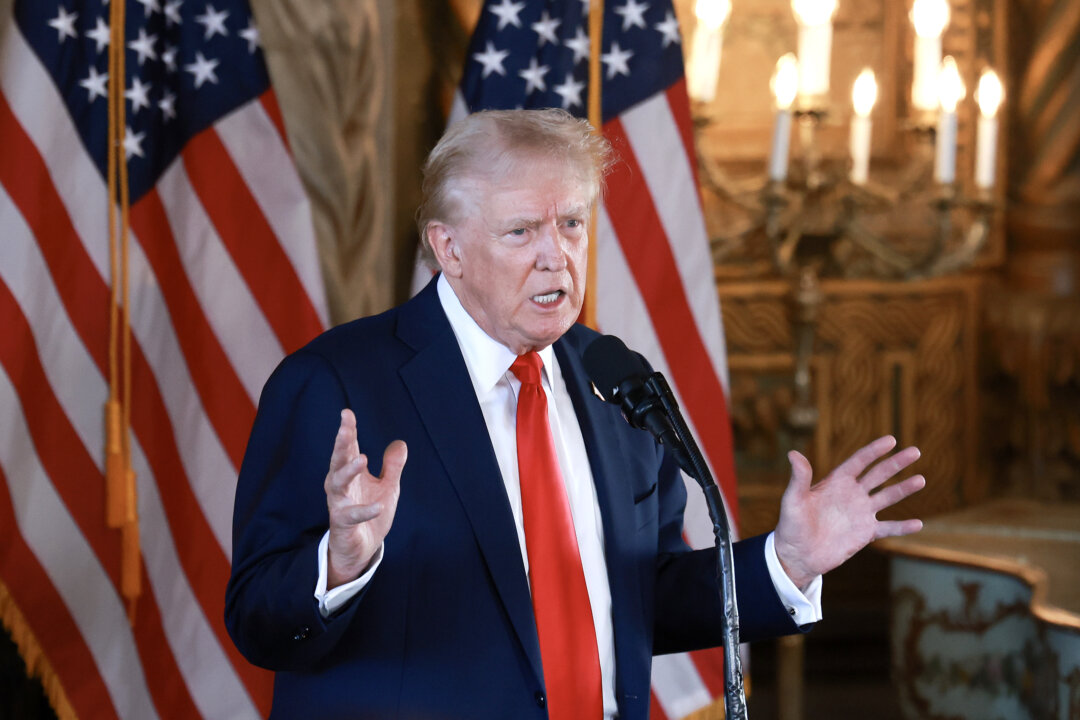The former president said Monday that he will not enforce the Comstock Act from 1873.
Former President Donald Trump said on Monday that he will not enforce the Comstock Act to restrict the sale of abortion medication via the mail.
During an interview with CBS News in Pennsylvania, Trump was asked by a CBS reporter, “As president, would you enforce the Comstock Act which could prohibit the sale of or the distribution of medication abortion by mail?”
“No. We will be discussing specifics of it, but generally speaking, no, I would not,” the former president said, later adding that “I would not do that,” referring to enforcing the Comstock Act, an 1873 law that banned both the mailing of obscene matter and articles used to induce an abortion.
On June 13, the U.S. Supreme Court unanimously ruled to preserve access to mifepristone, a drug that is commonly used to induce an abortion. The court found that a doctors’ group that challenged access to the drug didn’t have standing to file a lawsuit.
Trump made reference to that ruling in his CBS interview, saying that mifepristone is “going to be available. It is now.”
“As I know it, the Supreme Court has said keep it going the way it is. I will enforce and agree with the Supreme Court, but basically, they’ve said keep it the way it is now,” he added.
At least 22 states require abortion medication to be delivered in person either by prohibiting mail delivery or requiring medication to be taken in a doctor’s office. Such laws have been temporarily blocked from going into effect in Kentucky, Montana, and Ohio amid legal battles, according to the National Conference of State Legislatures.
The Comstock Act has gained renewed attention in recent months after groups including the American Civil Liberties Union (ACLU) alleged that pro-life groups want to reinstate the law to target the mailing of drugs like mifepristone. Sen. Tina Smith (D-Minn.) in June announced legislation to repeal the act, which her office said could be misused.Earlier this year, Trump told a Pittsburgh television station that states should have the power to make such decisions on abortion, following the Supreme Court’s June 2022 decision to overturn Roe v. Wade.
“Things really do have a lot to do with the states, and some states are going to have different policy than others,” Trump said. He later wrote on his social media platform Truth Social that he “has never and will never” advocate for restricting birth control and other contraceptives.
In April, Trump also declined to endorse a national abortion ban, saying it should be left up to the states.
“Many people have asked me what my position is on abortion and abortion rights,” the former president said in the video posted on Truth Social at the time. “My view is now that we have abortion where everybody wanted it from a legal standpoint. The states will determine by vote or legislation or perhaps both, and whatever they decide must be the law of the land. In this case, the law of the state.”
Trump also argued that the latest U.S. Supreme Court’s Roe v. Wade ruling gave those who oppose abortion rights “tremendous power to negotiate,” leverage he said he wanted to use to strike a deal that he hoped would “make both sides happy,” and bring the country together.
“Many states will be different. Many will have a different number of weeks or some will have more conservative than others, and that’s what they will be,” he said. “At the end of the day it’s all about will of the people.”
His announcement about states having the right to make decisions on abortion drew pushback from some pro-life groups at the time.
“We are deeply disappointed in President Trump’s position,” Susan B. Anthony Pro-Life America’s president, Marjorie Dannenfelser, said in April, adding that the Supreme Court’s “decision clearly allows both states and Congress to act.”
The Epoch Times contacted Susan B. Anthony Pro-Life America for comment but did not receive a response by publication time.
The Associated Press contributed to this report.

